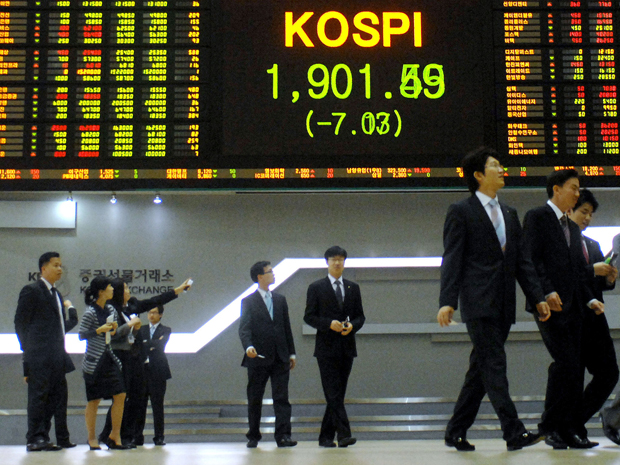Global economic growth is expected to continue its downward trend, standing at 3% by the end of 2019, the International Monetary Fund (IMF) mentioned during its World Economic Outlook (WEO) on Tuesday, noting that this rate is 0.3% down from the WEO’s April 2019 projections.
The global economy is in a synchronised slowdown and experiencing its slowest pace since the global financial crisis in 2008 and 2009, the report said, asserting that this growth is a serious climbdown from 3.8% in 2017.
The 2019’s subdued growth is a consequence of rising trade barriers, elevated uncertainty surrounding trade and geopolitics, idiosyncratic factors, causing macroeconomic strain in several emerging market economies, and structural factors, such as low productivity growth and aging demographics in advanced economies.
Global growth in 2020 is projected to improve modestly to 3.4%, a downward revision of 0.2 % from WEO’s April 2019 projections. However, unlike the synchronised slowdown, this recovery is not broad based and is precarious, explained the report.
Growth for advanced economies is projected to slow to 1.7% in 2019 and 2020, while emerging market and developing economies are projected to experience a growth pickup from 3.9% in 2019 to 4.6% in 2020, the report asserted.
Notable feature of the sluggish growth in 2019 is the sharp and geographically broad-based slowdown in manufacturing and global trade, the report said, noting that higher tariffs and prolonged uncertainty surrounding trade policy have dented investment and demand for capital goods.
Countries should simultaneously undertake structural reforms to raise productivity, resilience, and equity, the report recommended, adding that the risks from climate change are playing out now and will dramatically escalate in the future, if not urgently addressed.
Low inflation in advanced economies could become entrenched and constrain monetary policy space further into the future, limiting its effectiveness, the report warned, adding that trade barriers and heightened geopolitical tensions, including Brexit-related risks, could further hamper confidence, investment, and growth.
Additionally, the WEO kept its positive projections for Egypt’s GDP at 5.9% by the end of fiscal year (FY) 2019/20 in comparison to 5.5% by the end of FY 2018/19, explaining that Egypt’s GDP growth will record 6% in FY 2023/24.
Interestingly, the IMF’s recent expected GDP growth in Egypt by FY 2023/24 are below the expectations of the Finance Minister, Mohamed Moeit, as he announced the targeted GDP growth at 7%, over his participation in the Egypt-Korea Business Forum on 8 October.
The report added that GDP growth of Turkmenistan and Uzbekistan are expected to hit 6% in 2020, noting that Egypt, Turkmenistan, and Uzbekistan’s GDP growth next year will be the highest in the Middle East and Central Asia (MECA) region and will drive growth in the region.




